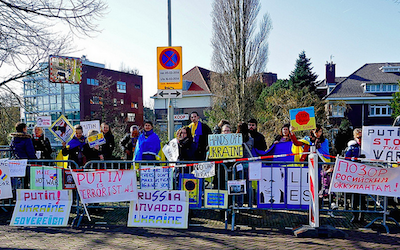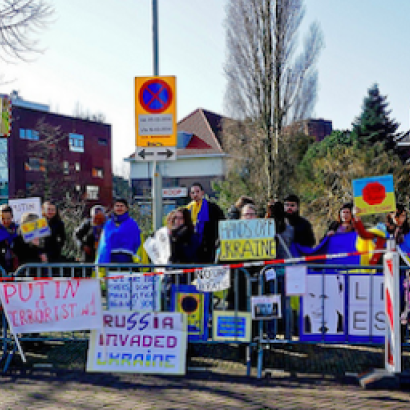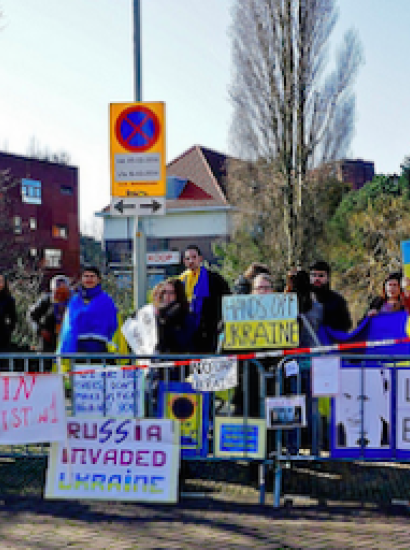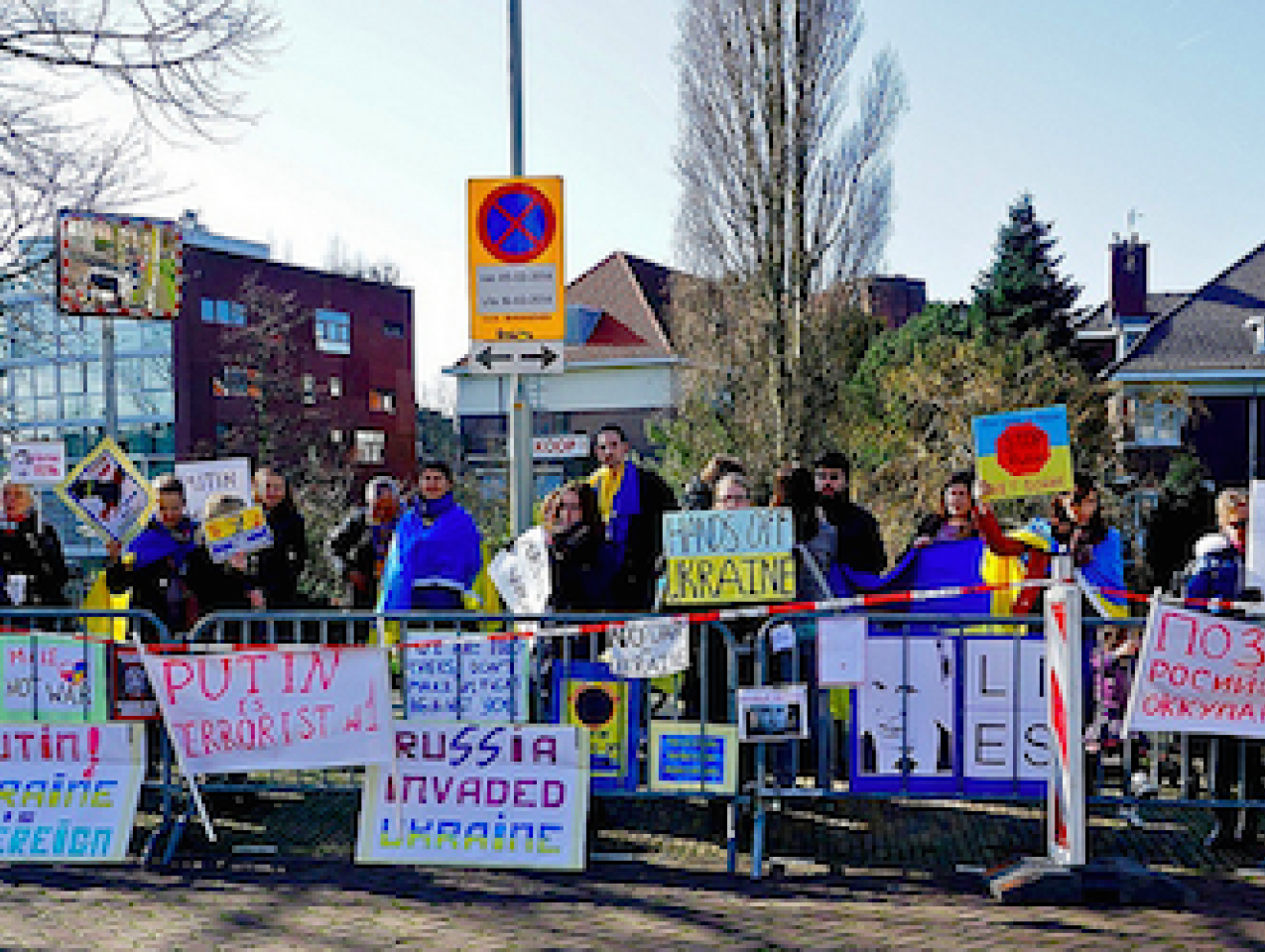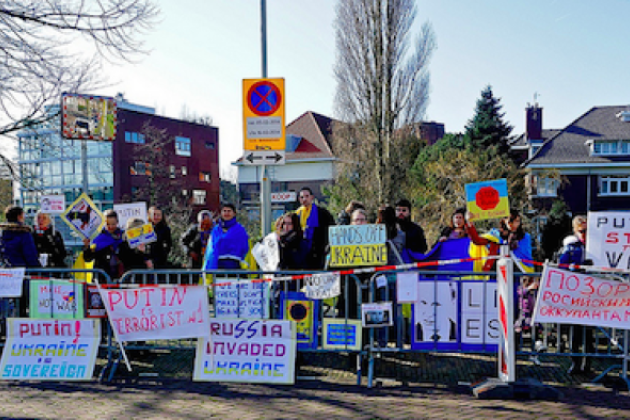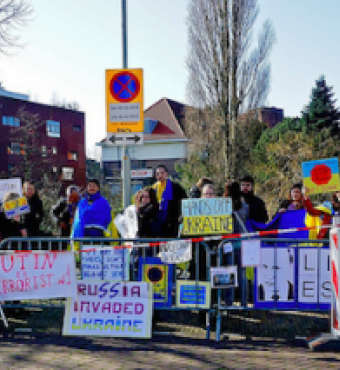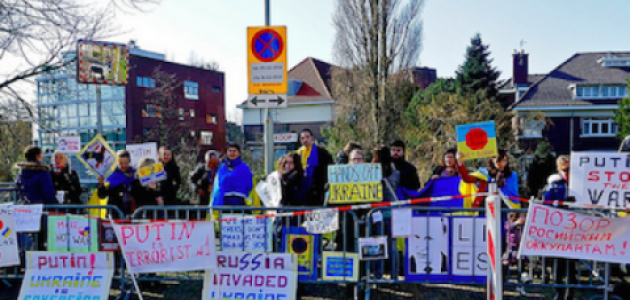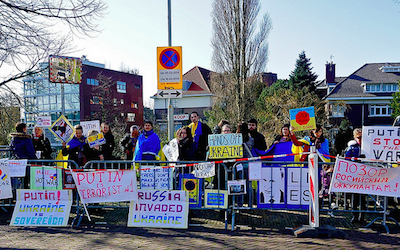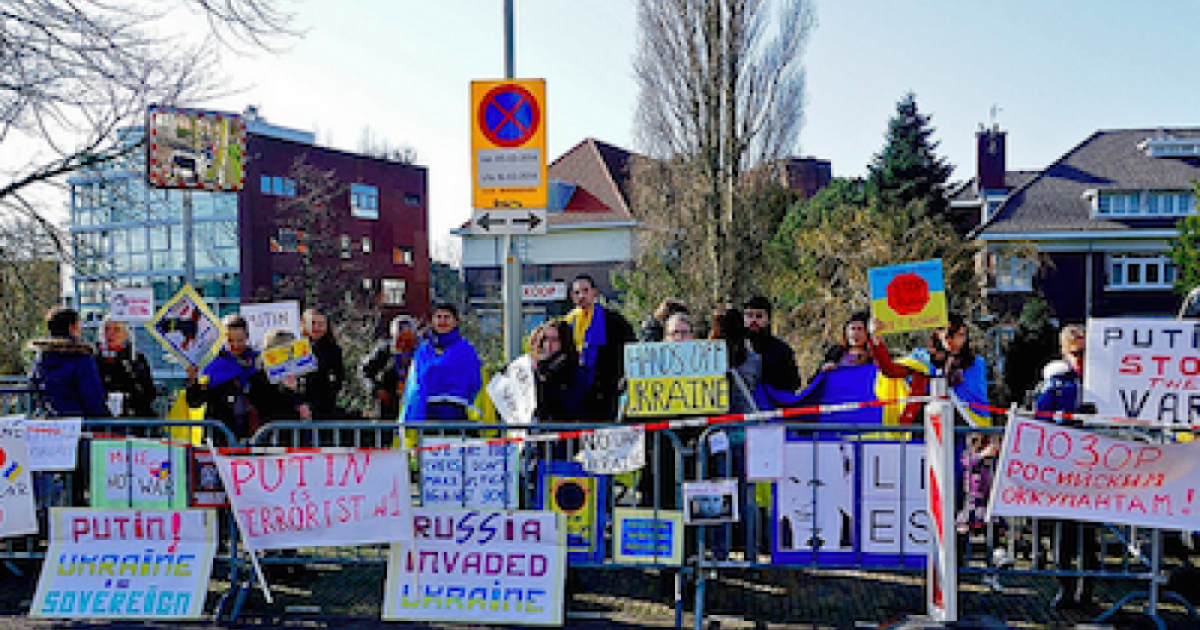- International Affairs
- US Foreign Policy
The U.S. response to Vladimir Putin’s illegal annexation of Crimea and his amassing of troops on the border with Eastern Ukraine has been tepid, at best. Although the Obama-Kerry sanctions of Putin’s inner circle bit a little more deeply than Europe’s, Putin can shrug sanctions off as a minor inconvenience. Even though the invasion and Anschluss of Crimea violates the 1994 Budapest Agreement signed by Russia, the United States, and the United Kingdom that assured Ukraine’s territorial integrity, Kerry did not put it on the list of grievances in his discussions with the Russian foreign minister. The Ukrainian government was outraged at the state department’s seeming acceptance of Russia’s Crimean annexation as a fait accompli. After all, Ukraine surrendered its nuclear arsenal in return for territorial guarantees, and, when the going got tough, the U.S. did not meet its own treaty obligations.
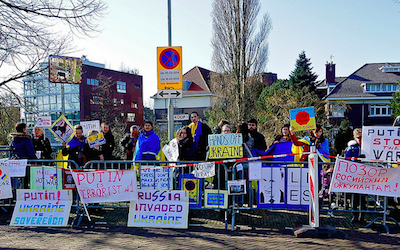
Photo credit: Roel Wijnants
Pundits explain the apparent U.S. indifference to Russia’s destabilization and threatened dismemberment of Ukraine in terms of war fatigue and geography. Americans are simply worn out from the Iraq and Afghanistan wars, and Ukraine is far away on the eastern fringe of Europe. Russia supplies Europe with natural gas. We have more than enough for ourselves. It is Europe’s vital interests that are being threatened, not our own. They should take care of this matter, not us.
This reasoning explains President Obama’s embarrassing refusal to supply military equipment to the outmatched and beleaguered Ukrainian army, and there are exclusive reports (Daily Beast) that U.S. intelligence won’t even share its intelligence with Ukraine on Russian military preparations for invasion. The Ukrainians must wonder whose side we are on.
Annexing Crimea, the West has decided, has not threatened vital interests. Russia annexing half, or all, of Ukraine is a different matter. Will such a threat stir Europe and the United States to action? That, to quote Shakespeare, is the question.
I believe that we stand at a major turning point in history that will affect America and Europe for decades to come. We fail to grasp the long-term implications of allowing an unrestrained Putin to annex by force territories of sovereign nations or sovereign nations themselves. In our lack of attention, we do not understand that we stand on the threshold of choosing between two visions of the world. Both visions are bleak, but the second one spells long-run trouble and immense costs, which we must understand right now.
In the first scenario, Russia remains, using Barack Obama’s term, a “regional power.” With its nuclear arsenal, energy production, and Security Council veto, it can continue to play a spoiler role throughout the world as the United States’ “number one geopolitical enemy,” to use Mitt Romney’s words. Russia will be our nemesis in Iran, Iraq, Venezuela, Cuba, and other trouble spots it can stir up. It will veto our resolutions in the Security Council. It will nibble away at its peripheries. It will do its best to assist our enemies. The naïve hope of the “reset”—that Russia will help us out in trouble spots as a partner—has hopefully been buried in the graveyard of bad ideas.
If the United States and Europe limit Putin to the annexation of Crimea, we get this first version of the world scene, but it can be gained only with decisive action. To limit Putin’s territorial ambitions, we must put in place the strongest of sanctions, coordinated with Europe, activate NATO exercises, flood East Ukraine with international observers, and provide substantial financial grants to the struggling Ukrainian government. We must make sure that the May 25 presidential election goes forth as planned and reject out of hand Russia’s demands to dismember Ukraine by its faux federalization proposals.
In the second scenario, Putin succeeds in taking southeastern Ukraine, leaving a mortally wounded West Ukraine, whose sole interest is survival. The Baltic States might be spared because of the NATO shield, but they do have temptingly substantial Russian minorities. The other states of the former Soviet Union understand that they are completely at the mercy of Putin’s Russia. They cannot count on help from the West. They will either be annexed (Moldova, Georgia, Belarus, and even Kazakhstan), or they will become vassals of Russia, clearing their every move with Putin. Russia now controls the energy resources not only of Russia but of all Central Asia, which adds some thirty percent to the oil and gas production under its supervision (U.S. Energy Information Agency). The emboldened Putin is free to explore new areas for trouble-making and intervention, knowing that no one is prepared to face down a powerful bully. He will broaden Russia’s claim on arctic mineral resources, which he will back up with the threat of force.
If we do not stop Putin now, we will elevate rogue-state Russia to a world power, playing a role disproportionate to its flailing economy, just as was the case for the USSR. Those who believe that economic weakness will eventually bring Putin back down to size do not understand the mischief that even weak rogue states can cause, especially those with nuclear weapons and a viable military. Just look to North Korea.
Our failure to fathom the threat to our national security of an unrestrained Putin is explained by the fact that we do not understand Putin, his regime, and what makes him and his inner circle tick. We live in the “civilized world” of norms and accepted behavior of the twenty-first century, which we assume others share, at least to some extent. We are unprepared to understand an entire nation that is run as a criminal enterprise by kleptocrats, whose only concern is power and wealth and preserving both.
With respect to Putin, we tend to accept the image that he wants the outside world to believe—a true Russian nationalist bereaved by the loss of an empire that was stolen by a West. He inherited from Boris Yeltsin a weakened nation encircled by NATO enemies. We are led to believe that he has no choice but to strike back, purely defensively, and there are any number of Western apologists ready to make his case for him. They argue that, as a beleaguered head of state, Putin must be cut some slack when he justifies the invasion of a neighboring state on a trumped up story (reinforced by non-stop propaganda) that he has to save fellow Slavs from rabid neo-Nazis and extremists who wish to maim them, steal their property, and deprive them of their language.
Outsiders fail to understand that Putin and his kleptocrats do not really care about Mother Russia. They use Russian nationalism and territorial expansion to solidify their power and wealth, for their personal interests, not out of patriotism. They worry little about economic sanctions. Even with a weakened economy, there is still plenty to steal. U.S. businessmen have learned the bitter lesson—after their investments have been confiscated by oligarchs—that no one in the ruling elite really cares. Putin’s inner circle cares only about their personal power and wealth, which means they must do what Putin wants, not what is best for Russia or for the companies they own or manage.
What concerns Russian kleptocrats, Putin chief among them? They face a problem of their own making. They deliberately constructed a society that has no rule of law, other than the whim of the ruling circle. Their own wealth and power are not secure. Political fortunes can change quickly. As rulers that understand their lack of legitimacy and their kleptocracy, they live in fear of that one spark that can bring millions to the streets. Their nightmare, indeed, is the Euro-Maidan demonstrations of downtown Kiev, which brought down one of their kind—former president Yanukovich. Even worse, the demonstrations brought to power a new government that sincerely wishes to be a part of Europe. Their worst nightmare is a rule-of-law prosperous Ukraine on their borders. How long would it be before their people learn from the Ukrainian experience and rise up to overthrow them?
What has motivated Putin and his inner circle throughout the Ukraine crisis is the fear of a Europeanized Ukraine on their border. They have had no real concern about military bases in Crimea or non-existent threats to ethnic Russians. They are simply worried about their own skins and the personal wealth they have accumulated outside of Russia. They send their wives and children abroad. Their children study in the best and most expensive schools and universities in the west.
We have a choice of the two scenarios right now. We will not have a choice in a very short while. It is possible that Putin will make a military move within a day or two. What is our answer going to be? In deciding, we must understand that Putin interprets concessions as weakness and actions as strength. Playing nice with Mr. Putin gets you nowhere. If the West does not learn this lesson, it stands no chance. A nineteenth century bully with nuclear weapons and an army can beat a well dressed, polished, and well-mannered twenty-first century diplomat all day long.







